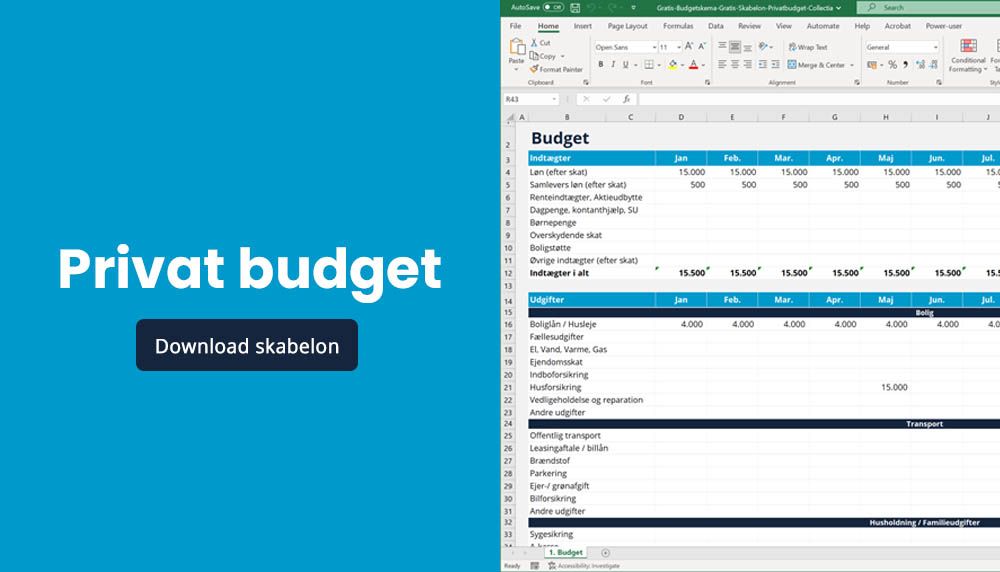
3 tips to improve your credit rating
More and more companies are using credit assessments in connection with the creation of new customers and ongoing assessments of existing credit relationships. This is often done to prevent bad payers, weakened liquidity and, not least, to ensure that the customers' information and data are correct. Data used in the companies' accounting program, ERP system or other systems.
But what can businesses actually do to improve their credit rating?
In this post, we focus on the topic of 'credit rating of customers - private and business' - and in particular how you as a customer can improve a company's rating of you.
What does a credit rating contain?
Before you can improve your credit rating, it is useful to know what a credit rating of an individual or company includes.
You should be aware that no two businesses are the same - and their credit ratings are often not the same either. They even often vary depending on the type of customer you are: private, business - old or new customer.
Here we look at some of the data points that most companies use to assess your or your company's creditworthiness.
- Known bad payer / Listed in debt register
- Previous internal history
- Accounting information
- Owners of the business
- Address
How can you improve your credit rating?
There are several ways in which you as a debtor can improve your credit score / credit rating.
Here we give you 3 points to look at if you want to significantly improve your credit rating.
1: Get out of debt registers
First of all, it is important that you are not listed in one or more debt registers. This is often one of the heaviest items when assessing the creditworthiness of a person or company.
In other words, if you are listed in a debt register, it is important that you get to grips with the underlying creditors and the debts you owe them as soon as possible.
An entry in a debt register is among the more onerous items in a credit assessment.
2: Offer cash payment
Many companies choose to reject a customer, in whole or in part, if their ratings point to 'poor' or 'bad payer'.
If you are refused, you can (if possible) offer to pay the company in cash - and become a customer anyway.
Most companies will often require this if a credit rating is negative - but some will choose to reject you altogether. We think you should accommodate these by offering a full or partial up-front payment.
3: Show a good payment history
Not all companies use a credit check, and even if they do, your previous payment history is often a good indicator. A benchmark that many companies use to determine whether you can be offered credit the next time you shop with them.
For example, if you have received several reminders in the past, and if the company has previously sent you a debt collection notice or similar - this will often have a very negative impact on your credit rating.
So, make sure you behave in a professional manner on an ongoing basis; pay your invoices on time - and if that is not possible, make sure you start a dialog with the company as soon as possible. Engaging in a dialog with the creditor is ALWAYS better than not paying your invoice, postponing payment, etc.
Are you in debt to a company or a debt collection agency?
Our overriding advice to anyone who is in debt to one or more companies and/or debt collection agencies is to engage in a dialog with them. Even if you are unable to pay their claims in full or in part.
As previously described, other debts and debts listed in a debt register are among the heaviest items in a company's credit assessment of you. In other words, it can have major consequences for you and your family's everyday life if you are listed in one or more debt registers as a bad payer.



